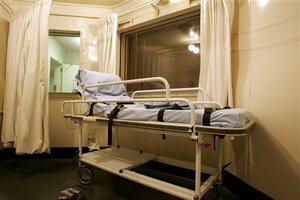Ischemic stroke hospitalizations increase among children and young adults in US
 Hospitalizations for stroke increased among children and young adults in the U.S. over 14 years, researchers have found.
Hospitalizations for stroke increased among children and young adults in the U.S. over 14 years, researchers have found.
Investigators from the U.S. Centers for Disease Control and Prevention in Atlanta reported the increase in hospitalizations among people aged 15 to 44 for ischemic stroke, which occurs when a blood vessel supplying the brain is blocked by a clot or by a build-up of fatty deposits called plaque.
Stroke is the third leading cause of death in the U.S. and 87 per cent of all cases are attributed to ischemic stroke, according to the American Heart Association.
Between 1995 and 2008, hospitalizations for ischemic stroke among those aged five to 14 increased 31 per cent. The rate increased from 3.2 hospitalizations per 10,000 to 4.2 hospitalizations per 10,000.
Among those aged 15 to 34, hospitalizations increased 30 per cent from 5.0 hospitalizations per 10,000 to 6.5 per 10,000, researchers found, informs CBC.ca.
In the same 14-year period researchers noted a rise in stroke among youth, they discovered that diabetes, cholesterol and tobacco use "has also increased in adolescents and young adults experiencing stroke," said lead researcher Dr. Mary George, a medical officer in CDC's Division for Heart Disease and Stroke Prevention.
"I was surprised to see the extent of cardiovascular risk factors in this young population," she said. The focus on controlling these risks has usually been among older adults, George said.
"We really need to encourage people to lead healthy lifestyles from the time they are very young," she said. "Stroke is largely preventable and eating a healthy diet, getting regular physical activity, [and] avoiding tobacco and alcohol abuse can go a long way to prevent stroke", reports Hispanically Speaking News.
A healthy diet and lifestyle habits can help prevent the onset of stroke and other heart diseases. This includes eating plenty of fruits and vegetables, less salt and saturated fats, not smoking, and engaging in regular physical activity.
The National Stroke Foundation (Australia) also recommends that people should learn to recognise the signs of strokes, as early detection can make a vast difference in outcome.
These include severe headache, changes in speech such as slurring, losing consciousness or feeling dizzy or light-headed, says to PRWire.
Subscribe to Pravda.Ru Telegram channel, Facebook, RSS!





